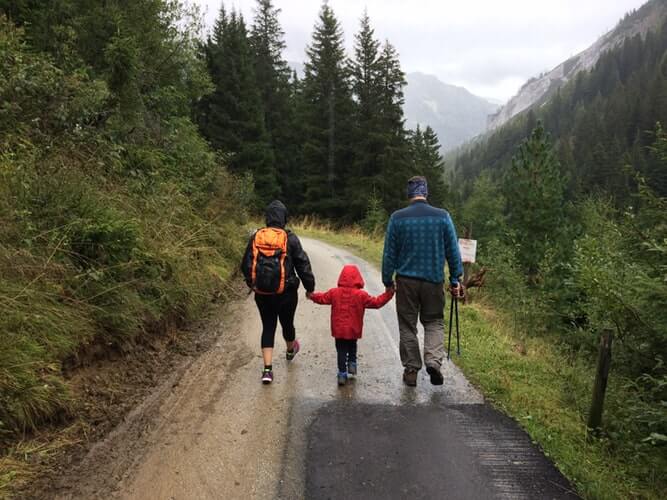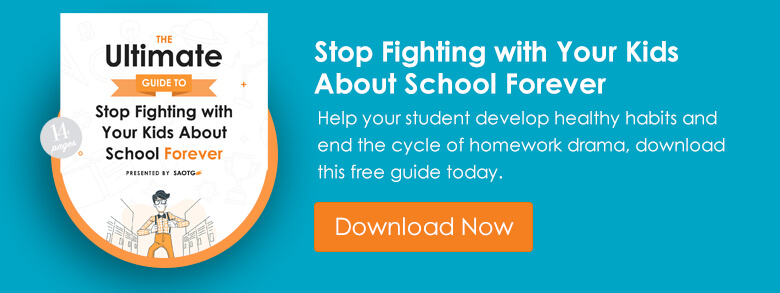Nobody likes a helicopter parent, right? Most of us have heard the words used at some point, probably in a critical way, but what exactly is a “helicopter parent”? Before we can discuss helicopter parenting, we have to understand exactly what it means.
The first usage of the term showed up in the 1960s and comes from the book Parents & Teenagers by Dr. Hiam Ginott, which quoted teenagers as feeling like their parents hovered over them like helicopters.
Dr. Ginott and others have subsequently defined helicopter parenting as any behavior by parents that takes too active or direct a role in their children’s daily lives. While originally used in reference to teenagers, helicopter parenting can show up at any age. Helicopter parents may call teachers or principals frequently, do part or all of their children’s homework for them, or try to interfere in their children’s playtime with friends in ways that can be controlling, overprotective, and overbearing.
All of this may sound excessive to some people, but usually, helicopter parenting comes from a well-intentioned place. There is no one specific cause of helicopter parenting, but often, misplaced concern for their children’s well-being is at the root of the issue.
One such potential culprit is anxiety. Patents who are anxious and may feel like they don’t have control over their own lives are likely to try to control the lives of their children. Alternatively, the desire to direct may come from past issues; parents who felt neglected or unloved as children may overcompensate by being omnipresent. Other times, parents may be trying to protect their children from failure, taking steps to ensure that their children never get bad grades or have negative interactions with their peers. Lastly, a factor that may not seem as obvious is peer pressure. Sometimes, a parent sees other parents taking an active role in their kid’s lives, and feel like they have to do the same to “keep up.”
The Consequences
While the benefits of being engaged and active as a parent are obvious, there is a time and a place for everything. Overbearing parents may, in fact, be able to protect their children from experiencing pain or disappointment in the short term, the reality is that facing challenges and, yes, occasionally failing, teach kids valuable lessons about life. Students who are never challenged or allowed to fail struggle in a number of ways, and that only gets worse as time goes on.
One painfully obvious result of doing too much for a child is a lack of self-confidence. Parents may not mean it, but not letting children try things on their own teaches them that their parents don’t trust them or think that they are capable. Ironically, this problem is self-justifying, as kids whose parents never let them feel independent are, in fact, less capable of taking care of themselves. How can a student know how to do laundry or pack a lunch if they never had to?
Another negative result of this attitude is that when things inevitably do go wrong, even in small ways, students who have helicopter parents often don’t have the coping skills to handle it. If a parent always made sure that a child never had to clean up a mess or face disappointment, those children have been denied the opportunity to learn the coping skills that will get them through life.
The end result of this deficiency is never good. Generally speaking, a lack of basic coping skills manifests in one of two ways: Entitlement or Anxiety. Children who cannot handle failure sometimes develop the feeling that things always go things have always gone their way because they somehow deserve it, leading to them acting entitled or “spoiled.” An alternative to this attitude which is just as common (if not more so), is anxiety. Students who have never faced disappointment can often feel like if things go wrong, it is because of some deep personal failing on their part, which can lead t chronic anxiety and fear of letting people down. Regardless of the manifestation, lacking the perspective to see that their parents’ behavior was inappropriate, children can develop deep-seated issues with themselves or the world around them.
Avoiding Helicopter Parenting
With all of this being said, how can a parent make sure that they don’t become like this while still caring and helping their kids? There is no one, simple answer of course, but there are things to keep in mind that can help. Oftentimes, awareness is a huge part of the problem. Many parents continue to engage in ways that are harmful to their children because they are simply not aware of the damage that they could be doing. Obviously, children need direction and assistance, especially at younger ages, but what may be necessary and appropriate for a 5-year-old is often problematic when applied to older kids. Age-appropriate help is key, as is allowing children to experience and overcome small challenges and overcome them on their own. We can explore the details and depth of exactly how to do so in another post, but in the meantime, let’s at least remember that students can achieve great things when they are allowed to grow and learn.
At the end of the day, helicopter parents want the best for their children. We understand. Our goal is to help students develop into independent, responsible adults, which often helps parents let go of the reins. For information about our programs, visit this page https://saotg.com/academic-coaching-tutoring/.





